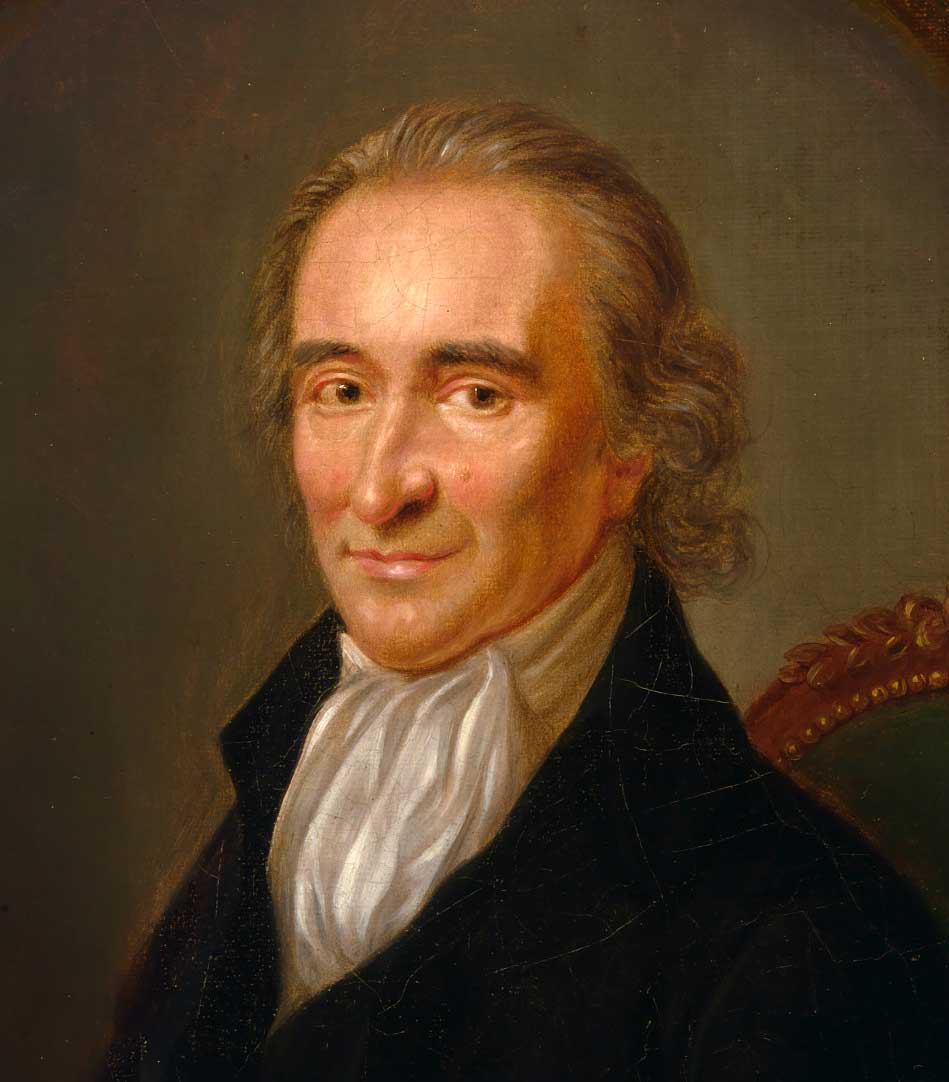Thomas Paine’s Common Sense was one of the most widely read works in Revolutionary America. And while the popularity of Common Sense indeed made it common, there was at its time nothing so typical about its politics that the author’s positions could be taken for granted. Rather, it was the world Common Sense and Rights of Man helped create that would make Paine’s ideas commonplace. And while it was the young United States that made Paine-the-pamphleteer an intellectual force to be reckoned with, Paine was not in any simple sense an American – neither by birth (he was born in Norfolk, England), nor by self-conception (“The world is my country…”). Paine epitomizes the truly transnational character of the revolutionary 18th-century: having been shaped by English radicalism, he participated in both the American and French Revolutions. Ideas and persons crossed seas and national boundaries, building political and intellectual networks that helped form the basis of revolutions in America, France, Haiti, and throughout Europe.

Yet, from the beginning, histories of the American and French Revolutions were informed by the romantic 19th-century conception of the nation-state. Under this paradigm, scholarship remained largely blind to the global dimension of Enlightenment thought – boundary-hopping writers and provocateurs like Paine could only be seen as interlopers, or partisan traitors. Moreover, the myriad revolutionary movements that sprang up in the wake of the American and French revolutions were largely or wholly obscured in Euro-American histories which failed to grasp the depth of interconnection between these events.
Released in 1953, R. R. Palmer’s Age of Democratic Revolution inaugurated a slow shift in the historical perspective of scholars. Palmer’s presentation of the American and French Revolutions placed these two seminal events in a common intellectual and political heritage (where they had, instead, for so long been treated as historical foils), and also made tentative steps towards placing them alongside other revolutions in Eastern Europe and Latin America. While notice of Palmer’s work waned shortly after release, it has since come to be seen as the starting point of an “Atlantic history” of revolutions. In the 21st-century, Age of Democratic Revolutions has re-emerged as a paradigmatic starting-point for scholars seeking to re-center revolutionary events and ideas long consigned to the periphery.
Age of Revolutions: Ideas and Change in the Trans-Atlantic World, 1630-1800, similarly attempts to collapse the seeming distance between the English Civil War, the American Revolution, and the French Revolution by bringing together books and ephemera from each event into a common conversation. The violence and radicalism of the English Civil War fostered the intellectual milieu which would shape itinerant radical commentators like Paine and Cobbett, as well as America’s founding generation. It was, in a sense, a prelude to the global convulsions of a century-and-a-half later. The success of the American Revolution, and the close social and intellectual ties forged through alliance, in turn inspired the events of 1789 in France – though with tragically different results.
The books and ephemera presented here include works by republicans and monarchists, quakers and kings, male legislators and female pamphleteers. Out of the diversity of authorship and perspectives, a portrait of this tumultuous time emerges: old polarities and certainties crumbling and making way for the modernity we now inhabit; where the world of the ancien regime court now feels as alien as the setting of a science fiction novel, and the words of Thomas Paine, once so radical, appear as self-evident as gravity.

The English Civil War Included here are pamphlets defending the right to petition and decrying unjust taxation, documents related to the execution of Charles I, and a Whiggish defense of the Glorious Revolution. But just as crucial to the development of political notions of individual liberty were those ideological forces that stood opposed to it: monarchists and clerics who appeared victorious after the Charles II’s restoration to the throne. Also presented here are texts defending the Divine Right of kings (Filmer’s Patriarcha), and eulogizing Charles I (the Basilika). Such texts forced a response from the agents of liberalization, and in the rapidly expanding exchange of ideas, defenders of the old order unintentionally contributed to the growth of revolutionary ideals.
The American Revolution The items presented here range from pro- and anti-Revolutionary pamphlets, to the Journals of Congress; here is a multi-faceted portrait representing both the socio-political responses to the conflict, and the intellectual and political institutions that grew out of it. Of special note are early editions of Paine’s Rights of Man and a pro-American tract by the great Whig historian and pamphleteer Catharine Macaulay.
The French Revolution For all of the influence exerted on the French political imagination by the events of 1776, the seeds of revolutionary France were planted long before the first shots were fired at Concord. The political ramifications of the Reformation in France (with the anti-authoritarian tendencies of the Huguenots), and the growth of the radical Enlightenment among French philosophes, both contributed to the breakdown of the social and political authority of the ancien regime. A first edition of Duplessis-Mornay’s 1581 anti-monarchical tract De la Puissance Légitime appears here, which ostensibly belonged to the brother of Robert-François Damiens, the failed assassin of Louis XV. Also presented is a complete first edition of Diderot’s 28-volume Encyclopedie, as well as “The Russell Collection”, a collection of over three-hundred books, broadsides and ephemera from the French Revolution (including first editions of early Republican constitutions, and signed documents from Turgot and Robespierre).